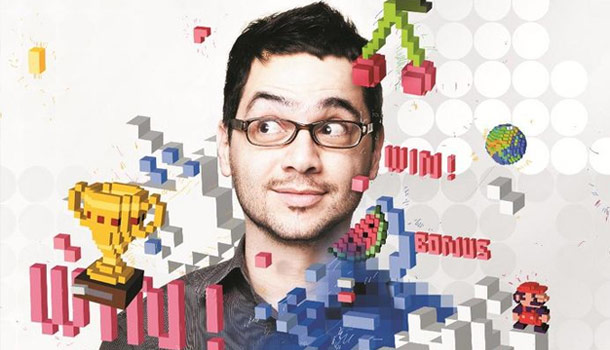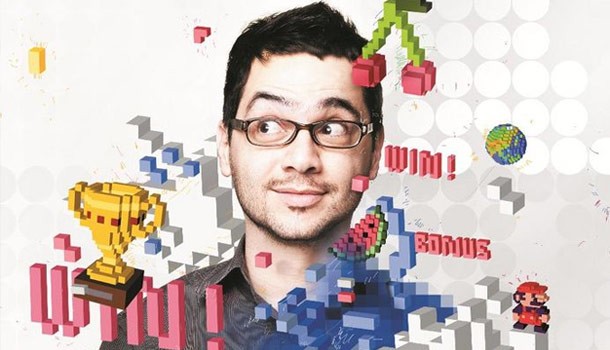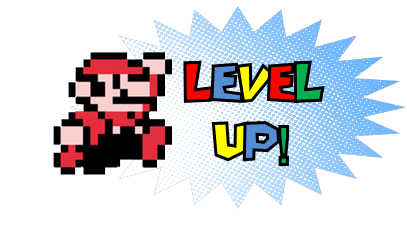Read – The Challenges of Game-Based Learning
While more and more institutions, instructors and students are beginning to see the validity of Game Based Learning there remains many challenges to overcome before this type of learning can become widespread.

1) Combining engaging game design with learning objectives and curriculum:
In order to make Game Based Learning educational and useful in the classroom, the game must meet certain learning outcomes. Adapting the games to these multiple outcomes requires various difficulty levels, numerous “quests or challenges” and an array of steps or levels to “win” the game.
2) Creating a gaming atmosphere that is adapted to all the learners’ ability:
Undoubtedly in today’s classrooms most students will be digital natives born in the era of Internet, cell phones and easily accessible computers. But this still does not apply to all learners nor does it reflect the individual ability and gaming knowledge of each learner. Adapting a game to respond to these differences is difficult.
3) Overcoming the cultural barrier with faculty and parents:
Marketing the idea of Game Based Learning to faculty and especially to parents is not an easy sell. GBL is still stereotyped as gaming or as some parents view it “wasting ones time”. The stigma associated with games and play is difficult to overcome in an educational setting where accountability and results are necessary and required.
4) The cost associated with developing a learning game:
Games require time, knowledge, and money to take shape. Some colleges and universities will not have the resources or time available to them to make educational games. The cost of funding a game coupled with the hardware and software needed to create it, can become too costly for institutions to manage.
5) Game development requires knowledge and certain proficiencies:
Creating a game and playing one are two vastly different tasks. The knowledge and abilities needed to create a game that will meet the needs of various learners, engage the students, respond to curriculum, be ready quickly and be cost effective are vast and difficult to come by (Epper, 2012).
Developing the game itself comes with its’ own set of challenges but there are also other implementation issues that Game Based Learning faces:
- Are computer laboratories available where students can play games?
- Are they appropriately configured?
- Are they available for the extended hours that game play involves?
- Is the right equipment available, such as headphones, speakers, and special consoles?
- Is support available for the game, both technically and in terms of game play?
- Is gaming integrated into the curriculum or just added on? (Oblinger, 2006)
Lastly the challenges for Game Based Learning are not solely in financial, infrastructure or design capabilities but there are also the technical challenge that are faced by the teachers and instructors implementing and monitoring the gaming : The faculty working with the game will need time to develop, implement, evaluate, guide and analyze what and how the students are learning (Van Eck, 2006). This type of evaluation will require the faculty to be trained to understand how the game works, its’ alignment with curricula and how the game can help them in their teachers. Getting everyone “on board” is key to engaging the students and making the game successful.
Bibliography
Epper, R. M. (2012, August 12). Game-Bed Learning: Developing and Institutional Strategy. Educause, pp. 1-3.
Oblinger, D. G. (2006, January 1). Games and Learning: Digital games have the potential to bring play back to the learning experience. Educause Quartely, pp. 1-3.
Van Eck, R. (2006, March/April 1). Digital Game-Based Learning: It’s not just the digital natives that are restless. EDUCAUSE Review, vol. 41, no. 2, pp. 16-30.
Watch – The Challenge of Implementing Games in the Classroom
Comment – Answer the Questions
Please comment below on the following questions:
- If you have tried a Game Based Learning tool before, what are some challenges you have encountered?
- In the future, do you see institutions overcoming these challenges and incorporating more Game Based Learning in their classes?
- As an educator, would you feel comfortable using Game Based Learning as a tool in your classroom? What would you consider might be the #1 challenge with this?


As an Adult Educator working within the healthcare realm, I cannot foresee game based learning being implemented anytime soon with my target population. However, there is a game targeted at teens with cancer called Re-Mission, released by the nonprofit HopeLab on April 3, 2006. The game is a Microsoft Windows based third-person shooter based in the serious games genre.
The game was conceived by Pam Omidyar with direct input from young cancer patients and oncology doctors and nurses. Re-Mission was designed to engage young cancer patients through entertaining game play while impacting specific psychological and behavioral outcomes associated with successful cancer treatment.
Source: http://en.wikipedia.org/wiki/Re-Mission
Hi Diane,
Thanks for your reply. I just checked out Re-Mission, seems interesting and I could really see how battling and winning cancer in the game, could bring positive energy to children fighting cancer. Thank you for sharing.
M-A
Hi Diane,
I came across this and thought you might be interested in the concept: http://gamesforhealth.org/. It’s an organization “dedicated to exploring the intersection between video games and health.” The site says that a recent conference explored 3 issues in relation to global health:
1) opportunities to improve health care in emerging economy countries. (One example that I’ve heard [can’t remember the source, possibly an article we read for this class] is a mobile game designed to teach pregnant women about high risk behaviours during pregnancy.)
2) global response & awareness of acute health issues, esp in developing countries
3) coordinated health issues, eg. flu pandemic, when a coordinated global response is needed.
I can see a lot of potential here, especially for shorter format mobile games.
I think one of the biggest challenges that face game-based learning is getting parents and faculty to see its utility in learning. Last year I was teaching in a different school. While I was there I tried to implement technology where ever I could. One of the ways I did this was through the use of Minecraft in my math class. Students created and worked collectively solving perimeter and area problems (among many others). Last week I was sent an email from a colleague at that school letting me know that a few teachers had asked to have Minecraft removed as it was a distraction to the kids. It is troubling to see this approach from staff, but I know that they simply have not seen its benefit, nor can some of them even comprehend it since they see no value in these “games” as well.
I agree completely! Implementing technology has always been a struggle in any school, where I have worked. I like how you mentioned Minecraft, my students love it and several dressed as Steve for Super Hero day! I think the word” Game” is what throws people off, gaming is generally not associated with learning, maybe we should call it “Having-Fun Learning” instead.
Thanks for your reply.
M-A
That’s kind of sad. I have actually never played Minecraft, I have some students making comments to me about it – I teach Grade 1 – I think he gets his ideas from his older brothers. Anyway, I was reading this article on Minecraft being used to design architecture (http://www.wired.co.uk/news/archive/2013-07/13/minecraft-architecture) – thought this would be a counter argument in realizing the potentials of this program. Personally, I think that video games has its place in education. I learned lots of soft skills through Starcraft in my own spare time growing up – I also agree with most of the disadvantages – loss of interest in regular schooling, lack of real interactions – but at the same time, it was fun and engaging and I learned lots of English vocabulary off of it!
Hi Rocky,
Thanks for sharing your article on Minecraft, I found it very interesting, and I think parents would too, given the chance. I had never heard of Starcraft but it looks very cool. As an ESL learner, I have found many games challenging and educational and many have helped improve my English (and many have proven to me how far I have yet to go), I struggle with games such as Chicktionary and Scribblenauts but I still enjoy them and I definitely learn a lot at the same time.
Thank you for sharing,
M-A
To be honest I have spent more time researching potential games than actually implementing them. One of the main reasons behind this is the number of barriers I need to cross in order to get the game in my classroom. A couple of years ago we got into talking about Second Life and its educational benefits since it has a area dedicated to education. We got admin onboard, but then once we met with IT the headache started. The biggest concern of course was security. In my experience it almost feels like we need a change of the guard to have games successfully implemented in a classroom.
I saw Second Life in a previous ETEC course and was really intrigued by it. Were you ever able to get it setup, or did the IT dept put a complete hault to it? And I definitely know what you mean. Back home in my District I am on leave from it is the same story. The upper management goes to the IT dept for questions that should be better addressed to the Educational Head of Technology. In my humble opinion, IT is going to do what they do and place restrictions anywhere they can, because it makes life easier. I think the real danger is not having a strong enough knowledge base in our upper management.
If they knew of the rewards and benefits to integrating GBL and other ed tech offerings, we would have much different looking classrooms across Canada.
Were you able to have Second Life in your classroom in the end? or did you have to give up your endeavors? Yes security, firewalls and blocked sites can be a headache, especially when you consider that updates and upgrades may need to be completed on the current computers/laptops that the students are using, I agree all of these things can be huge deterrents to starting a new learning venture. I have found that we seem to have less troubles if we are using apps, as opposed to computer games, but then again ipads are not exactly a cheaper alternative.
Thank you for your thoughts,
M-A
I would definitely try to integrate games into my practice as I am finally back in the classroom after being away for two years. In fact I believe I will be integrating a scratch unit sometime after Christmas this year and am really looking forward to it. As for the biggest hurdle, I would have to say perception. This is not just other teachers (I’ve heard similar stories to jetz66 experience with minecraft), but is students and their parents.
Integration of this will become much more widespread, when people see the value of GBL in the learning process.
Yes, selling the idea of GBL to staff and parents is not an easy thing to accomplish. I have had success, using GBL with my special needs students, whose parents are more than willing to have them learn in this manner. I find this very interesting considering my other parents wouldn’t dream of having their children learn through gaming, which is unfortunate.
Thank you for sharing!
M-A
Hi M-A, I couldn’t agree more. Parents of students with disabilities are more receptive to using whatever strategies / accommodations to assist them in learning. I worked with persons with disabilities for a number of years and found that games were a good medium to teaching social skills.
I haven’t tried much game – based learning in the way its been described. Mostly its things like typing games or language games available on the internet to practice grammar – very few games that work – help with communicative competence. First, I teach adults and if they are playing games, they think they aren’t learning. Second, we have very limited access to computers, so our 1 hour of computer time per week is spent on things like information literacy. When I work in training, most games are simulations that may reflect what would happen if. Like someone said, investing in designing simulations even in a platform like secondlife and can be very costly. With mandated training in organizations i.e. on security issues etc – people just want the information they need and to get it quickly, they often have other things they have to do with their time and don’t want to waste it playing games. That being said, the training and development industry is starting to buy into gaming, but I think it will mostly be simulation and training oriented (i.e. health-care) not knowledge focused. I can see it as you said being viewed as a time waster – if too much training was game based.
At the last school where I taught (an English Immersion Primary School) they were about to incorporate online homework into the curriculum. This GBL platform was provided by the publishers of the textbooks the school was already using, and coincided with the curriculum. The program was scheduled to start with the new grade 1 students the coming year, and a new grade would be added each year so that students would be primed to use the programs as regular homework as they progressed through school. I was and still am very impressed by this venture and the choice of my old principal to take it on.
I would say this is an ideal situation for teachers, who are then not required to scramble around trying to find video games to match the curriculum.
I would absolutely love to implement game-based learning with a class. I have used games in classes but I want to structure a class around gaming principals. It would be a dream to try it out but my greatest barrier would be time. As it is still experimental I wouldn’t want to try without a lot of planning. Probably a summer break. Unfortunately I am in the private sector right now but if I make the switch back to public I WILL use game-based instruction. And then I will reflect.
Most of my GBL is limited to simulation type activities that have some small gaming component within them. I teach mainly high school students who are preparing for standardized exams and I find that I just don’t have time to dedicate towards gaming. One of the major challenges for educational gaming would be designing to fit into the curriculum. In regards to some of the earlier comments, minecraft was also blocked at my school, perhaps if there was a teacher at our school who used the game or supported it, this might not have happened.
In the future, do you see institutions overcoming these challenges and incorporating more Game Based Learning in their classes?
I would say yes big time! Though I can’t say whether this will take 5 or 10 years but I can see it coming with the efforts to digitize education in different places across the world like some states in the US and South Korea (Wait for next week’s topic Digital Textbooks for more information on that 🙂 I am exploiting the opportunity here (lol)
As an educator, would you feel comfortable using Game Based Learning as a tool in your classroom?
I am comfortable using games as part of the learning experience, however I envision it more out of the classroom. Not because it is a waste of time or something but simply because of logistics. Games can be played anywhere: at home, computer labs, free time at school, in the bus with tablets and smart phones. However the classroom time is the only time that the teacher and the students meet together so I would rather dedicate this time for developing other skills that won’t be developed outside the classroom. As David Jackson said commenting on the theory section, this would affect the socialization process at school. In my experience teaching Arabic for kids, they play the game at home, which they really enjoy and we dedicate class time to practicing the language: talking and writing. The model works for us but this is nonformal education setting, so I am not sure how this would be implemented in a formal educational setting.
I would feel more comfortable using Game Based Learning in the classroom if there is more support by the staff, parents and administration. I have had trouble in the past trying to book a library (only because the computer labs were all booked) for students to use the computers for a virtual simulation program to learn about Geology. The librarian believed that the library should only be available for research and not for playing computer simulations.
I would also see complaints made by parents if I started using computer games as a form of math practice instead of the traditional textbook based practice and even more so if I told students to practice at home with the computer game. I would most likely need to inform the parents of the benefits and reasons for using computer games in a math class and receive consent from parents in a letter. For parents who do not consent, this would mean I would need to provide an alternative method of student practice.
Finally, I would only use the computer games in the classroom if they worked really well with the curriculum and usually the games that do, like Gamedesk, require some form of fee. I think it would be hard to convince the administration to provide the funds for such games as the budget is so tight already and it would require taking the computer lab from another class that is doing more “publically acceptable” activities with the computers.